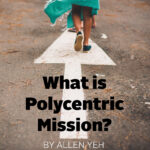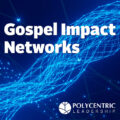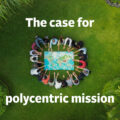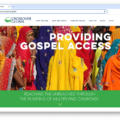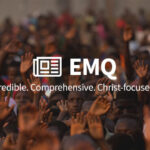GUEST POST BY COALA2
This year a group of Majority World Mission leaders gathered to discuss and make recommendations for better practices in mission for the future. Their encouragement of polycentric mission to empower local initiative and leadership is inspiring!

Recommendations for Mission Practice for the Majority World
COALA2, Bangkok, 1-3 May 2024
Thirty-eight leaders of non-Western mission movements, including missionaries, mission leaders, and local church leaders from 20 countries in Asia and Latin America, adopted a statement for healthy missions of the majority world church in the era of multi-centered missions at the COALA2 (Christ Over Africa, Asia, Arab and Latin America) Congress in Bangkok, Thailand, from May 1 to 3. The following is the full text of the COALA2 Congress Statement.
A. Preamble
The 20th century has witnessed a major shift in the shape of the global church. For the first time in the modem period, the center of gravity of the church has moved from the West into the non-Western or Majority World (MW: Africa, Asia, Latin America & MENA [Middle East and North Africa]). Today, two-thirds or more of global Christians reside in the latter.
Side by side with this shift, we have also seen a relative numerical decline of cross-cultural missionaries being sent out from the West, with the gap increasingly being filled by those sent out from the MW. The overall result of the above is that some countries that were mission fields in the past are now increasingly recognized as missionary sending nations. Further, some that used to be sending nations are now receiving missionaries back from formerly receiving nations.
Given the above, many in the global church today recognize that we are now living in a new era of polycentric missions, wherein missions today is from everywhere to everywhere. The above have important missiological consequences for the global church, both the Western and the MW churches.
As a group of missions workers from the MW, we have some real concerns over the involvement of MW churches in cross-cultural missions. We would like to propose some recommendations for further reflection and discussion by the wider church.
B. Recommendation on MW Churches’ Engagement in World Missions
1. The primacy of the leading and power of the Holy Spirit in mission’. In accordance with the Lord Jesus’ instruction (eg Luke 24:49; Acts 1:4-5, 8) and the example of the Apostles in the New Testament, especially in Acts, we affirm that missionaries sent out must go under the leading. of the Holy Spirit and in His power. It is primarily the work of the Holy Spirit which makes mission possible and fruitful.
2. The missionary and the local church:
2.1. Missionaries and related cross-cultural workers should always go with a servant heart and attitude, and with humility and respect towards the leaders of the local church and their indigenous co-workers. Their reliance should always be on God and not on their superior educational background or the resources that they bring from outside.
2.2. The goal of missions is to build the local indigenous church which is marked by self government, self-support, self propagation and self theologizing. Therefore, missionaries should never build churches centered around themselves or their sending bodies, which remain dependent on them and the resources they bring.
2.3. As far as possible, a missionary should work with local churches with a Kingdom mindset which is concerned to build the whole church of God in a particular region or nation. Churches should never be planted and built in isolation. Rather, in so far as possible, it should become part of an existing denomination or network of churches, working in cooperation with others.
2.4. Missionaries should always hold themselves accountable to the local church or body where they are working. Thus, missionaries sent out should know how to network with local believers and, and as far as possible, be willing to serve under local leadership.
2.5. Missionaries should see themselves as midwives, and not mothers. They must therefore respect the local churches and allow them to make all important decisions in a contextual and culturally-sensitive manner, albeit based on scriptural teaching.
2.6. The most effective witnesses of the gospel are indigenous believers and the local church. To this end, missionaries should encourage all indigenous believers and available local church-related institutions to take responsibility and initiative for the growth of the church. The missionary’s major tasks are to train and work alongside local believers and institutions.
2.7. Money is a matter of crucial concern in missions. It can bring great blessings; it can also cause much damage in the long term. We therefore urge missionaries and their sending bodies to exercise extreme care in this matter. We need to avoid models which lead to a standard of living for the local Christian worker which is higher than the local average or to initiate expensive projects which the local church will find difficult to sustain long-term.
C. Unity and Partnership
We are called to unity in Christ (John 17:11,21) which should be expressed as genuine partnership in the work of the Kingdom of God. The following needs to be taken seriously if such partnerships are to emerge.
- God has given us a clear mission mandate in Matthew 16:18 and 28:19-20. Together with this, we believe also that God has given all the resources needed for the advancement of the work of the Christ’s mission, be it spiritual, human and financial. Such resources are to be shared as much as practically possible by all involved:
• Between the local church and the missionary.
• Between the mission sending and the receiving churches.
• Between churches and mission agencies working across the world. - In this era of polycentric missions, we affirm that genuine partnerships must be developed between all churches everywhere, between those in the West and the MW, as well as among all churches in the MW. The challenge before us to fuse all our God-given resources together into a powerful synergistic whole for world mission.
This article was originally posted by COALA2 (Christ Over Africa, Asia, Arab and Latin America) Congress, here: https://missionews.co.kr/news/584922
Permission to repost this article was granted by Rev Jonas Kang, Executive Director of the Korean World Mission Association.
